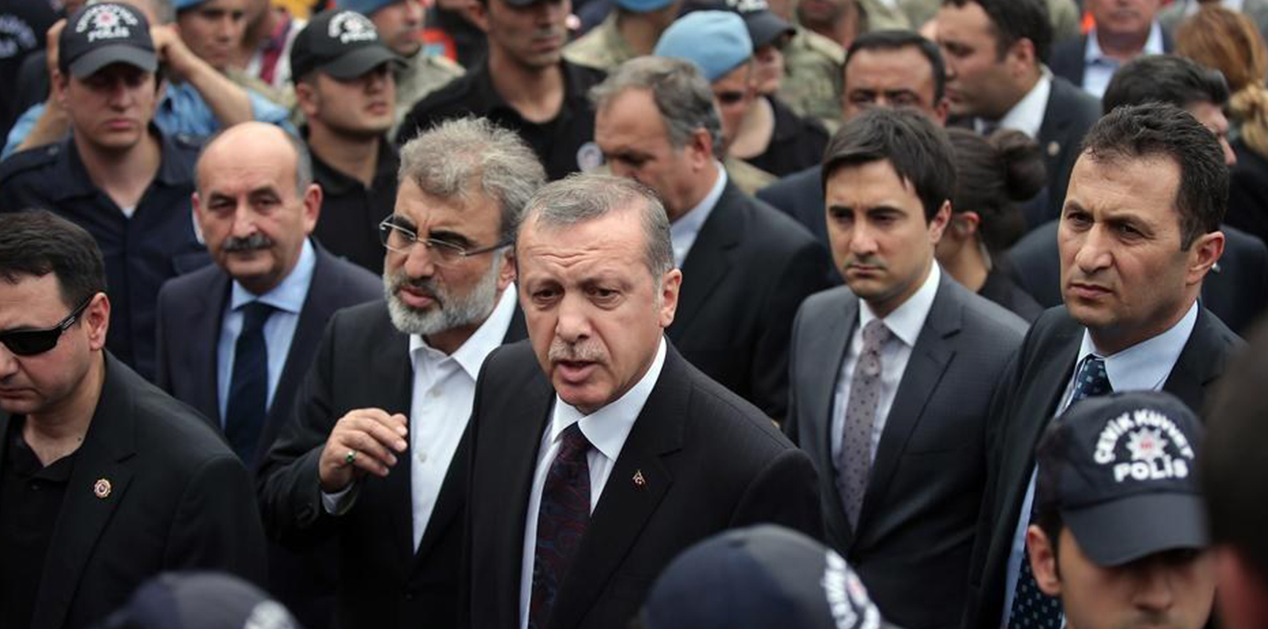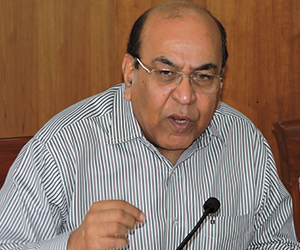I was in Ahmedabad when the attempted or rather failed ‘coup de tat’ took place in Turkey. I was to speak at a corporate function about India’s national security. However, my hosts requested me to first specifically speak for a few minutes on Turkey because ostensibly most of the audience could not join the dots about what exactly was happening in that country. I readily obliged because that’s a country you can’t fail to know if you have any pretensions like me of being a strategic commentator. Yet, one has to be acutely conscious that Turkey is one of the most complex conflict zones, albeit not classical conflict, and people find it difficult comprehending the events there.
The elite love visiting Istanbul the city divided into the Asian and European segments by the sliver of the Bosphorus. Tourists love to dine by the Bosphorus, step into the Blue Mosque and shop endlessly at the Grand Bazar, one of the largest market places in the world. Ankara, the capital city is sited inside a bowl with hills all around. The terrain is like Ooty, the picturesque hill station in the Nilgiris in India. All over the hilltops massive Turkish flags flutter in the wind symbolizing the nationalism and spirit infused into a defeated nation by none other Kemal Ataturk, also known as Kemal Pasha (Mustafa Kemal) one of the iconic personalities of the 20th Century.
I visited Ankara, Istanbul and the beautiful city of Izmir on the Adriatic coast in 2006 on a study tour with access to the higher levels of government and other institutions. What I learnt in my preparations for the tour and during the visit is good enough for a layman understanding of the happenings in Turkey today. In a nutshell it is once again all about Islamism and it did not start a few years ago but goes back in history almost a 100 years or more.
The Ottoman Empire, founded in 1299 lasted almost seven centuries. It was a trans-continental empire based upon the Anatolian region as the core center. With Constantinople (Istanbul) under its wings, the Ottoman Empire was also a multinational, multilingual empire controlling much of Southeast Europe, Western Asia, the Caucasus, North Africa, and the Horn of Africa. That it was Islamic made for its ambitious assumption of the mantel of the longest lasting Caliphate of Islam. It also remained the center of trans-continental dialogue and movement for many centuries. It was both Asia and European and aligned itself with Germany in the First World War with a mistaken intent and was finally militarily defeated by the Allies in 1918.
From 1918 to 1924 the Ottoman Empire underwent the classic suffering of a defeated power until through the Turkish War of Independence Kemal Pasha emerged. It is sufficient to note that Kemal Pasha was the one who brought order to disorder and created the modern state of Turkey. The fact that Turkey straddles both continents Asia and Europe and was hugely influenced by Persian culture did not escape Kemal Pasha.
His perception for the emergence of Turkey as a truly powerful nation was based upon the belief that it had to acquire a contextual approach to modernism and acquire a European attitude and character to make progress. To remain steeped in mediaeval thinking as was the practice of the Middle East, the Arab and the Persian culture, would spell doom for Turkey; never permitting it to move away from the shackles of the Middle Ages. Kemal Pasha was probably a man beyond his times and the manner in which he is adulated in Turkey says it all. The sprawling mausoleum housing the memorial and the nearby museum symbolizes the awe with which he is held in Turkish society; has that awe been diluted? A positive response to that question would reflect the tragedy of Turkey and its inability to convert to the modernism it so aspired for.
In 1923 Kemal Pasha took some hard decisions to break the symbolic linkages with Turkey's past, convinced as he was that the future lay in Europe and western thinking. Perhaps the modernism initiated by the industrial revolution in Europe was considered the vehicle of change. He decided to ban those symbols of Turkish existence which saw it being perceived as a part of the Persian civilization. Persian was banned overnight and the state language became Latin. Even for road signs and mainstream media only Latin was used. The headscarf, veil and fez (long Turkish cap) were banned to prove the liberal nature of the new Turkish society orientated towards European taste, values and way of life. The making of modern Turkey was based upon a divorce from Asia and a remarriage with Europe.
To safeguard the change he had instituted Kemal Pasha trusted only the Turkish Army; he was a warrior too and an accomplished scholar at that. The Army became the guarantor of the ideology of Kemal Pasha and secular democratic principles enshrined in the Turkish Constitution.
The long march of Turkey from Kemal Pasha’s enlightened principles to the Islamism associated with Recep Tayyip Erdogan, the current President and his Justice and Development Party (AKP) is a history of coups. Opting to stay out of politics but watching over political actions and their effect on the people the Army implemented the mandate of the Founding Father, stepped in with a military coup when needed – but quickly handed power back to the politicians. However, what is not appreciated is the relationship of Turkey with rest of Europe and how that has contributed towards Erdogan’s rise and dilution of the principles of Kemal Pasha.
With its large Army Turkey was a welcome inclusion into NATO and the virtual vanguard against a potential invasion of Europe, surrounded as it was by the powerful Warsaw Pact nations during the Cold War. However when it came to the inclusion of Turkey in the European Union (EU), Europe dithered, its racist bent coming full circle. Europe just did not wish for Turkey to be a part of the Union and placed every obstacle in the way. During my visit to Ankara I met the officials at the EU office set up for the purpose of negotiating Turkey’s entry. Just one of the clauses laid down for this was the need for Turkey to clean up its environment to come up to supposed Euro standards; the cost of it was an unaffordable 30 billion US dollars. The rise of Islamism in the Arab world and elsewhere along with the dent to Turkish self-esteem at being denied entry to the EU was a heady mix of emotion which helped in the decline of the Kemal Pasha legacy and the rise of what is now popularly termed Erdoganism.
This article is not about the coup per se. It is about the background which eludes most common people. Given the rise of modern day Islamism, Turkey as one of the populous nations comprising Muslims made every effort to prevent Islamism embedding itself. Erdoganism was the counter revolution which has been emerging in Turkey over time. The coup itself, about which more will be eventually written, was just a symptom of the struggle. It is not possible that with strong ideological counter currents Turkey could remain afloat with its aspirations outlined by Kemal Pasha.
Interestingly, in the fight against ISIS (Daesh), Turkey did not display the kind of energy that may have been expected from a nation which is a member of NATO. It was more concerned about the potential empowerment of the separatist Kurdish PKK in its South and East should the Kurds emerge the victors with the assistance of the Allies. It was also suspected of keeping supply lines open to Daesh and even purchasing some of the oil from the Mosul refinery. It is only after the surge of migration that it truly went in for sealing its border.
Lastly, the temptation to compare the situation in Turkey with that in Egypt is too strong. In Egypt, the Army has similarly been the virtual guarantor of secular values against the radical Islamist philosophy of the Muslim Brotherhood. Gamal Abdel Nasser had, in fact, hung to death one of the most radical Islamist thinkers – Syed Qutb.
Mohommad Morsi’s rise to power on the back of the Arab Spring and his attempts to introduce an Islamist character in Egypt in 2012-13 was strongly resisted by Sisi and the Egyptian Army leading to the counter revolution which sees Egypt under Army rule today. Awkwardly, it was the US which was against the rise of the Army in Egypt and it supported the Muslim Brotherhood. This was anathema to Saudi Arabia which has always opposed the Brotherhood. It is natural that the struggle between radical and moderate Islam will see many more such events at revolution and counter-revolution. This is the proverbial churning which has to take place before reformation of Islam becomes inevitable; that is a scholarly belief, not a belief of the clergy or many who implicitly follow the faith.
Published Date: 21st July 2016, Image Source: http://www.bbc.com
(Disclaimer: The views and opinions expressed in this article are those of the author and do not necessarily reflect the official policy or position of the Vivekananda International Foundation)











Post new comment